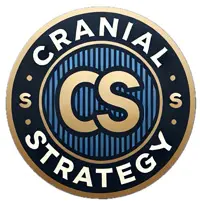Effective communication is crucial for student success in today’s fast-paced and interconnected world. Success hinges on more than just knowledge or academic prowess. Communication, often overlooked, plays a central role in determining how effectively students navigate the challenges of education, relationships, and career preparation. Furthermore, effective communication is not just a skill; it’s an essential tool that enables students to translate their potential into achievements, turning aspirations into tangible outcomes.
This blog explores why communication is critical for student success, how it impacts various aspects of their journey, and how Cranial Strategy equips students with the tools to master this transformative skill.
The Power of Effective Communication for Strategic Success

Effective Communication for Confidence
Communication is not merely about words; it is the art of connecting, influencing, and delivering ideas effectively. For students, the ability to communicate well sets the foundation for long-term success by impacting multiple areas of their personal and academic lives.
Clarity in Thought and Expression
Firstly, the ability to convey ideas clearly and succinctly is a cornerstone of success. Whether in a classroom discussion, writing an essay, or delivering a presentation, clarity ensures students are understood, and their ideas resonate.
Building Relationships and Collaboration
Secondly, team projects, study groups, and networking opportunities all require strong interpersonal communication skills. Consequently, effective communicators can build trust, foster collaboration, and maintain harmonious relationships with peers, teachers, and mentors.
Confidence and Self-Presentation
Additionally, the ability to articulate thoughts confidently can make a significant difference during interviews, public speaking opportunities, and social interactions. Confident communicators are more likely to leave a lasting impression and stand out in competitive environments.
Strategic Positioning for Success
Moreover, effective communication is an essential component of leadership and strategic positioning. Students who can navigate misunderstandings and inspire others through clear and empathetic communication emerge as strong leaders.
Why Effective Communication Matters More Than Ever
The 21st century is marked by rapid technological advances, increasing globalization, and a highly competitive environment. Therefore, this landscape has elevated the importance of communication to new heights.
In Academic Settings
Firstly, communication skills are crucial for excelling in debates, group projects, and presentations. Students who can engage actively and articulate their ideas effectively are better positioned to achieve academic success.
Navigating the Digital World
With the rise of digital platforms, communication extends to emails, social media, and online networking. Thus, students must learn how to create a professional and positive digital presence while avoiding miscommunication in online interactions.
Career Success
Furthermore, studies consistently show that employers prioritize communication as one of the top skills they seek in candidates. The ability to present ideas persuasively, work effectively in teams, and adapt communication styles to different audiences is critical for career advancement.
Barriers to Effective Communication

Barriers of Effective Communication
Despite its importance, many students struggle with communication due to several factors:
- Fear of public speaking or expressing opinions.
- Lack of exposure to structured communication training in traditional education systems.
- Inability to organize thoughts coherently, leading to misunderstandings.
- Challenges in adapting to different cultural or situational contexts.
Therefore, overcoming these barriers requires deliberate effort and a strategic approach.
How to Master Effective Communication Through Strategy
Effective communication doesn’t come naturally to everyone, but it can be cultivated through practice and strategic guidance. Here are some actionable steps to build strong communication skills:
- Understand Your Audience: Tailor your message to resonate with the people you’re addressing. Consequently, this ensures that your ideas are relatable and impactful.
- Practice Active Listening: Communication is a two-way street. By listening attentively, students can respond thoughtfully, fostering mutual understanding and respect.
- Embrace Feedback: Constructive criticism helps identify areas for improvement. Therefore, encouraging feedback and using it as a growth tool can enhance communication skills.
- Engage in Role-Playing Scenarios: Simulated situations, like mock interviews or debates, help students practice articulation, body language, and tone in a low-stakes environment.
- Develop Emotional Intelligence: Communication is as much about empathy and understanding as it is about expression. Emotional intelligence helps students connect with others on a deeper level.
How Cranial Strategy Reinforces Effective Communication for Student Success

Effective Communication through Cranial Strategy
Cranial Strategy goes beyond teaching communication as an isolated skill. Additionally, it integrates communication training within a larger framework of strategic thinking, inspired by the brain’s 12 cranial nerves that govern essential functions like speech, perception, and adaptability.
Here’s how Cranial Strategy empowers students:
- Comprehensive Learning Modules: Students are guided through practical lessons on speaking, writing, active listening, and non-verbal communication.
- Real-World Applications: Furthermore, the program incorporates scenarios like group projects, interviews, and presentations, ensuring students are prepared for real-world challenges.
- Strategic Integration: Communication is not taught in isolation. Instead, students learn how to link their communication skills to decision-making, leadership, and strategic positioning.
- Confidence Building: Through interactive and engaging sessions, students overcome their fears and gain the confidence to present themselves effectively in any setting.
Why Cranial Strategy Is the Right Choice for Students
Cranial Strategy isn’t just another program; it’s a transformative experience designed to address the gaps left by traditional education. By helping students master strategic communication, it equips them with the ability to:
- Navigate academic challenges effortlessly.
- Build meaningful professional networks.
- Stand out in competitive environments.
- Lead with confidence in an ever-changing world.
This program is your blueprint for turning communication into a powerful tool for success.
Conclusion
Effective communication is the foundation of success, enabling students to express themselves clearly, connect with others, and make a lasting impact. In a world where strategy is key, mastering communication is no longer optional—it’s essential. Cranial Strategy offers students the opportunity to develop not just communication skills but a strategic mindset to apply those skills effectively. Enroll today and take the first step toward a future where your voice makes a difference, and your potential is fully realized.

